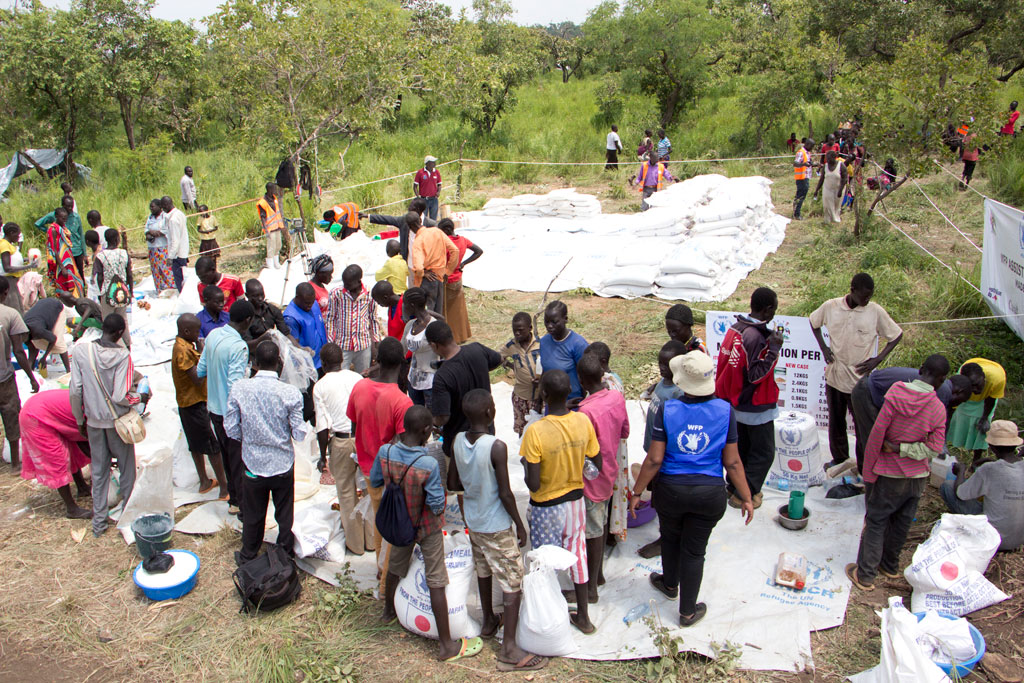The World Food Programme (WFP) is to reduce food rations for refugees, most of them from South Sudan, who have been living in Uganda since July 2015, due to funding shortages.
Uganda is currently hosting more than half a million refugees, including up to 80,000 South Sudanese who have fled from escalating conflict back at home, according to the UN refugee agency, the UNCHR.
While in Uganda, the majority of these refugees rely heavily on WFP for food and nutrition assistance comprising cereals, pulses, fortified blended foods, vitamin-A fortified vegetable oil and iodized salt until they are able to provide for themselves using land that the Ugandan Government provides for their resettlement.
And once they are resettled, WFP provides them with monthly rations or cash assistance depending on location and eligibility criteria, and according to the humanitarian agency, it is expected that a new programme to provide food is expected to cost US$ 7 million per month.
“Uganda is hosting a record number of refugees, half a million,” the WFP Uganda Director Mike Sackett says, as he oversees the distribution of food rations at the Nyumanzi Refugees transit centre.
“They come from Burundi, DRC but particularly from South Sudan which has been affected by very serious fighting initially at the end of 2013 but even as recently as last month,” he adds.
“Since that time,” Sackett says, adding: “75,000 new people have come into Uganda and the World Food Programme is providing essential food rations to them.”
According to the WFP, this year the agency has received contributions from Canada, the European Commission (EC), Ireland, Japan, the United Kingdom, and the United States among other donors.








